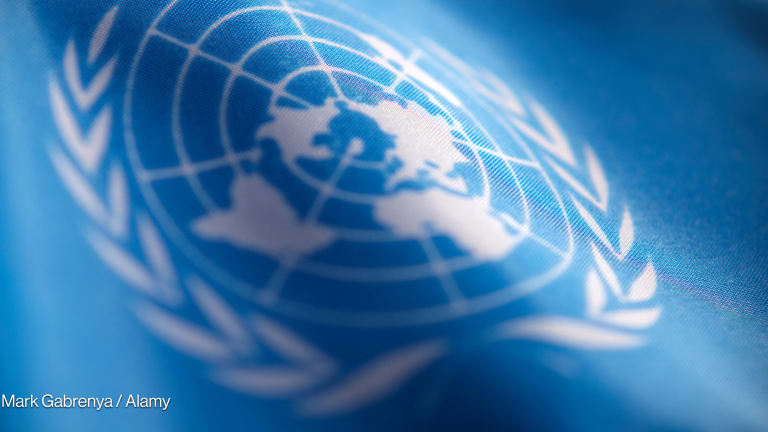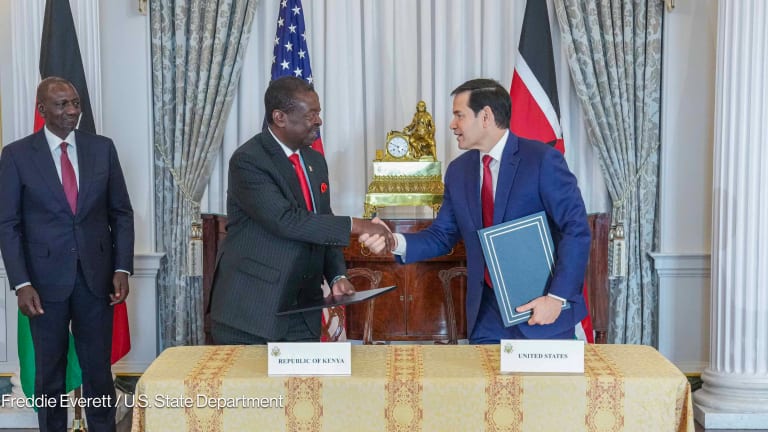
The United States and Afghanistan signed May 1 a landmark agreement that broadly defines the future of U.S-Afghan cooperation — including on development — for the next 10 years.
The agreement was signed in Kabul by Afghan President Hamid Karzai and U.S. President Barack Obama, who paid an unannounced six-hour visit to the country. The pact was originally set to be signed at the NATO summit to be held May 20-21 in Chicago, USA.
The agreement identifies mutual commitments in the areas of democracy promotion and protection, long-term security, regional security and cooperation, institutional development, and economic and social development. But it is short on specifics and instead proposes further negotiations for more detailed plans on how to meet the mutual commitments.
Despite the lack of specifics, the agreement can be considered a breakthrough as it is a legally binding confirmation of U.S. support for Afghanistan beyond 2014, the deadline for the pullout of U.S. troops from the country. The pact also designates Afghanistan as a “major non-NATO ally” of the United States.
On economic and social assistance, the agreement commits the U.S. government to seek aid for Afghanistan on a yearly basis but did not specify an amount. The Obama administration has requested $4.6 billion for its overall program in Afghanistan for 2013.
The agreement does name priority areas for aid: agriculture, energy infrastructure, transportation, natural resources management, financial management, trade, water, education and health.
The agreement also reaffirms commitments made by the United States at international conferences in Kabul, London and Bonn in the past two years. These include channeling 50 percent of aid through the Afghan government’s budgetary mechanisms, aligning 80 percent of U.S. development programs with Afghan national priorities by the end of 2012, and supporting development of the country’s private sector.
Further, the agreement outlines support for efforts to fight corruption in the country and pledges the promotion of exchange activities such as the Fulbright Program.
The agreement does identify conditions that Afghanistan must meet to enjoy continued U.S. support. These include ensuring financial transparency and accountability, improving revenue collection, enhancing public financial management systems and fulfilling its share of commitments pledged in past international conferences.
Read more on U.S. aid reform online, and subscribe to The Development Newswire to receive top international development headlines from the world’s leading donors, news sources and opinion leaders — emailed to you FREE every business day.








